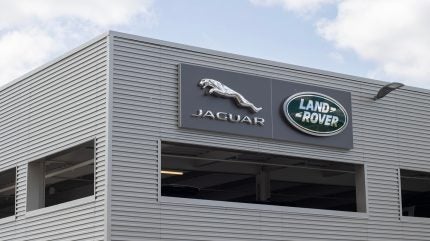
Jaguar Land Rover (JLR), a subsidiary of Tata Motors, has reported a 10.7% year-on-year (YoY) decline in wholesale volumes for the first quarter (Q1) of FY26, in line with the company’s expectations amidst a challenging period.
The British carmaker highlighted the “planned wind down” of legacy Jaguar models (effectively a hiatus to supply, with production of ICE models ended before BEV models and capacity come on stream) ahead of the launch of ‘new Jaguar’ in 2026. There was also a temporary halt in shipments of models to the US during April 2025, following the introduction of US import tariffs.

Discover B2B Marketing That Performs
Combine business intelligence and editorial excellence to reach engaged professionals across 36 leading media platforms.
As part of the transformation of Jaguar to a new portfolio of electric vehicles from 2026, production of Jaguar XE, XF and F‑TYPE, produced at Castle Bromwich in the UK, ended in May 2024, while I‑PACE and E‑PACE, produced in Austria, ended in December 2024.
Wholesale volumes for the quarter stood at 87,286 units, excluding the Chery Jaguar Land Rover China JV, marking a 21.7% decrease against Q4 FY25.
The Q1 saw an increase in wholesale volumes in the Middle East and North Africa (MENA) region by 20.5%, China by 1.0%, Overseas (4.6%), while North America (12.2%), Europe (13.6%), and the UK (25.5%) experienced declines, with the UK most affected by the legacy Jaguar models’ cessation.
Retail sales, including the Chery Jaguar Land Rover China JV, reached 94,420 units, dipped by 15.1% YoY and 12.8% from Q4 FY25.
The mix of Range Rover, Range Rover Sport, and Defender models constituted 77.2% of total wholesale volumes in Q1 FY26, an increase from 66.3% in the previous quarter and 67.8% YoY.
The company is set to release its full financial results for Q1 FY26 this August.
It operates two design and engineering sites, an electric propulsion manufacturing centre, three vehicle manufacturing facilities, and a battery assembly centre in the UK.
The company also has vehicle plants in China (joint venture), India, Brazil, and Slovakia, as well as seven technology hubs worldwide.
Last month, the British carmaker revised its fiscal 2026 earnings before interest and taxes (EBIT) margin forecast to 5%-7% from the previous 10%. This adjustment comes due to the uncertainties in the global auto industry, especially due to US tariffs.






